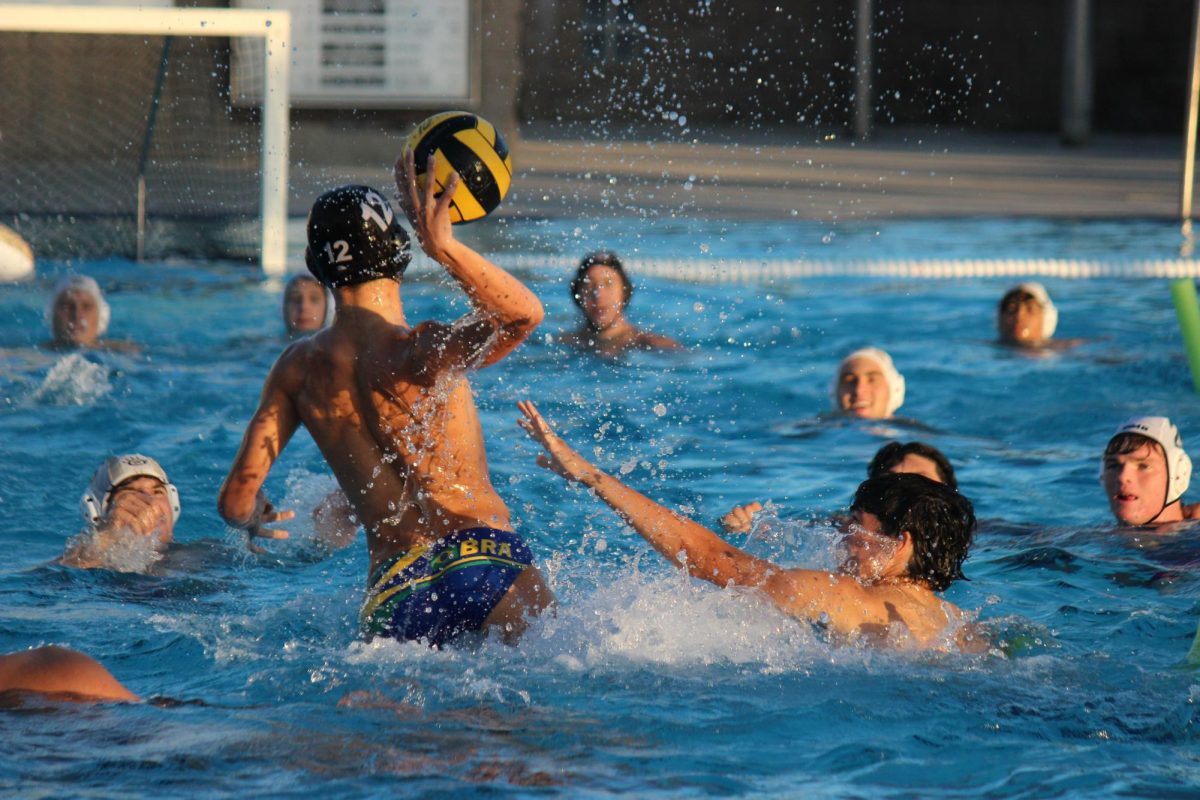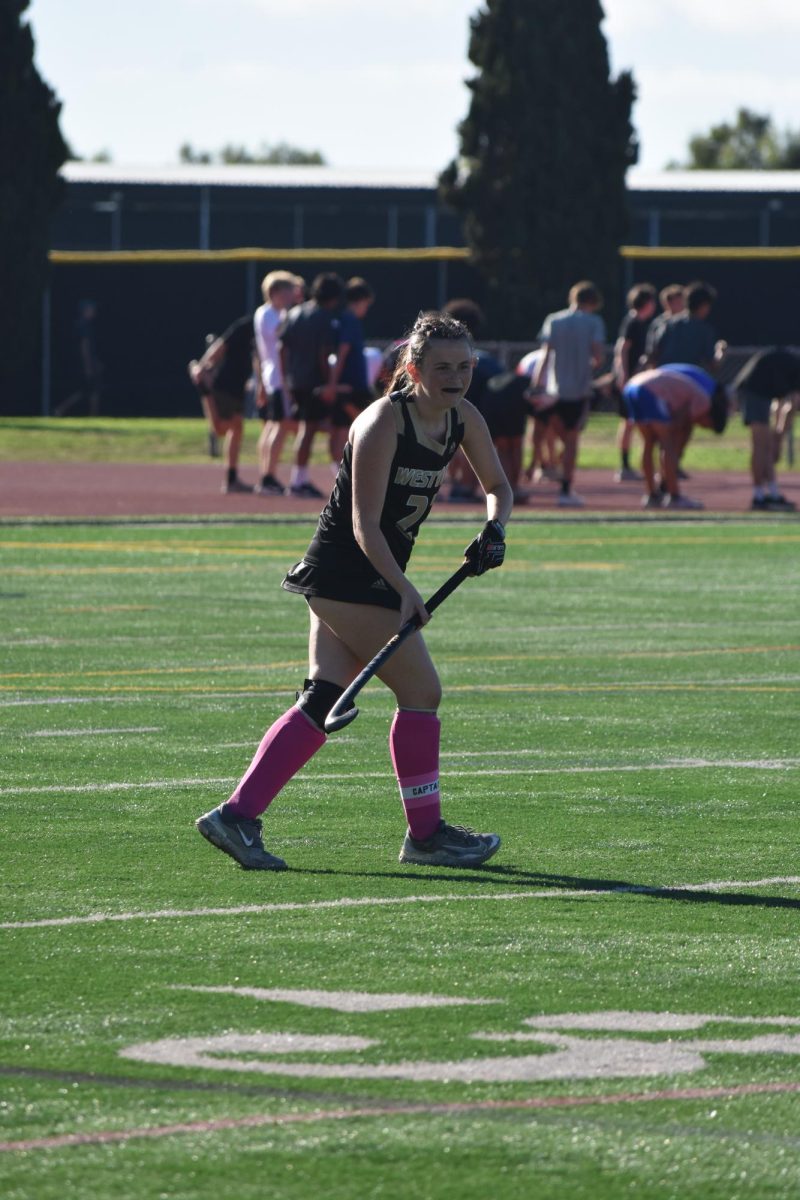Before stepping onto the court for the first feed-in match of CIFs, Nov. 1-2, Noelle Dang (11) made sure her ponytail was secure with each hair tie—three to be exact. Her racket fashioned a brand new grip because otherwise she would be destined to lose—a superstition Dang has always had. It’s a concentration game, a precision game. Off the court, there is no cheering, no shouting—just silence.
“As a tennis player, it’s really big not to let [distractions] get to you because tennis is a very quiet game,” Dang said. “You don’t have people out there in the stands screaming your name and yelling while you’re playing a match point, so when that does happen you can’t let [it] get to you.”
After winning the feed-in round and round of 16, the Wolverines lost in the quarterfinals for doubles teams. Dang and Ava Khansari (11) were one of the pairs making up the team, with their match resulting in a loss of 6-4, 6-1.
“We tried as hard as we could to try and win that point and try to get back into the game,” Dang said. “I saved match point and we had three more match points to go before we lost.”
For Crystal Chen (11) and Difei Zhu (12), another pair on the team, the challenge largely fell on Zhu’s twisted ankle right before the match, which happened the day after their two wins. Chen and Zhu managed to win their first set, and Chen said that this was able to boost their morale for the rest of the match.
“The first set was such a struggle because [Zhu] didn’t really have a warm-up before that, so we were trying to find a way to coordinate so that she didn’t have to move too much,” Chen said. “The relief after the first set [gave us] an advantage.”
Despite gaining on their opponents in the first set, the team ultimately lost. However, the pair still gave it their all for each point.
“We toughed out the point,” Chen said. “We’re not afraid to keep rallying, we’re not afraid of keeping the point going, and we’re not too hasty to end the point early.”
In a high-pressure setting, Dang said the game becomes more mind-focused than body-focused.
“In our long matches it’s more of a mental game instead of a physical game,” Dang said. “Physically we’re fine, but mentally we’re fighting a mental battle of, ‘Do you believe you can get through these points, win the match, and not let [distractions] put you down.’ It’s mostly who could play the stronger mental game and who could outlast the other person.”
Chen said the key component of playing the mental game is looking ahead rather than dwelling on mistakes.
“The most important thing in tennis [is to not] get caught up on every point because tennis is a game of mistakes,” Chen said. “Whoever makes the first mistake is the one who loses. [It’s important not] to get caught up on ‘Oh I shouldn’t have done this, I shouldn’t have hit it like this.’ [When] the point is already gone you can’t really fix it. [You have to] just focus on what you’re going to do for the next one.”
Moving forth, Dang said the main way the team aims to improve is by learning about each other’s strengths and weaknesses. With these connections, Dang said the team’s created a space that goes deeper than just a common sport.
“In [the team], we’re all like best friends [and] we know each person individually,” Dang said. “It’s not like we’re just placed into the team just to be a team and we don’t know each other. It’s not just being a team, it’s being friends.”






